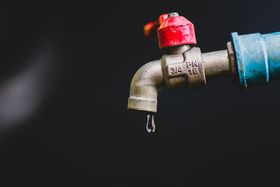Dehydration Headaches: How They Occur and How to Alleviate Them
Published October 6, 2024

Wondering if dehydration can cause headaches? The answer is, unfortunately, yes. In fact, it's one of the more common causes of headaches. This occurs due to an imbalance of electrolytes (sodium, potassium, etc.) which affects the way the body functions and can lead to nausea and headaches.
Painful headaches are debilitating enough, but dehydration headaches can be particularly unpleasant. They can be distinguished by their location, occurring only in the head, and accompanied by symptoms of dehydration such as increased thirst, reduced sweating and urine production, dry mouth, and decreased skin elasticity. Here's more information on how dehydration headaches occur and ways to alleviate them.
» Learn more about the benefits of structured water for your health
How Dehydration Headaches Occur
When you are dehydrated, the brain and other tissues in your body contract. As your brain contracts, it pulls away from your skull, which puts pressure on nerves and causes pain. Even mild dehydration can lead to a headache. Drinking water is essential to ensure good health, as it helps regulate our body temperature, transport oxygen, absorb nutrients, and contribute to the proper functioning of various organs in the human body. When you drink water, the brain goes back to its previous size, and the pain goes away.
What Does a Dehydration Headache Feel Like?
A dehydration headache can feel like a dull headache or an intense migraine; pain can occur all over the head, and moving the head can increase the pain. Dehydration headaches generally go away after you drink water and rest. You may also experience vertigo and other symptoms of dehydration, such as increased thirst, reduced sweating and urine production, dry mouth, and decreased skin elasticity.
How to Alleviate Dehydration Headaches
To alleviate dehydration headaches, consider the following steps:
- Rehydrate: Drink plenty of water, starting with small sips, as drinking too much water too quickly can upset your stomach. If you feel nauseous, suck on ice cubes. Ingest electrolyte solutions to replenish minerals and address electrolyte imbalances caused by dehydration.
- Rest: Rest is especially important if you feel tired or dizzy in addition to having a dehydration headache.
- Pain relief medication: Take medication if necessary, but avoid anti-inflammatory drugs while you are dehydrated.
- Cold compress: Apply a cold compress to your head to relieve pain.
Experience the Benefits of Structured Water for Dehydration Headaches
Structured water is pure (similar to uncontaminated natural water found in glaciers) and free of chemicals, allowing for deeper cellular hydration, which can effectively relieve dehydration headaches. It's healthier than tap or bottled water and hydrates your body better than ordinary drinking water, as it is easily absorbed into the body.
You can make your water structured in the comfort of your own home using the Mayu Swirl. To treat dehydration headaches, consider MAYU Electrolyte Drops to replace lost electrolytes like magnesium, potassium, sodium, chloride, and more. These drops are a healthier alternative to sugary electrolyte drinks.













































